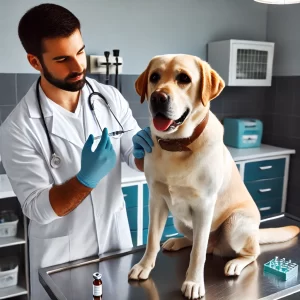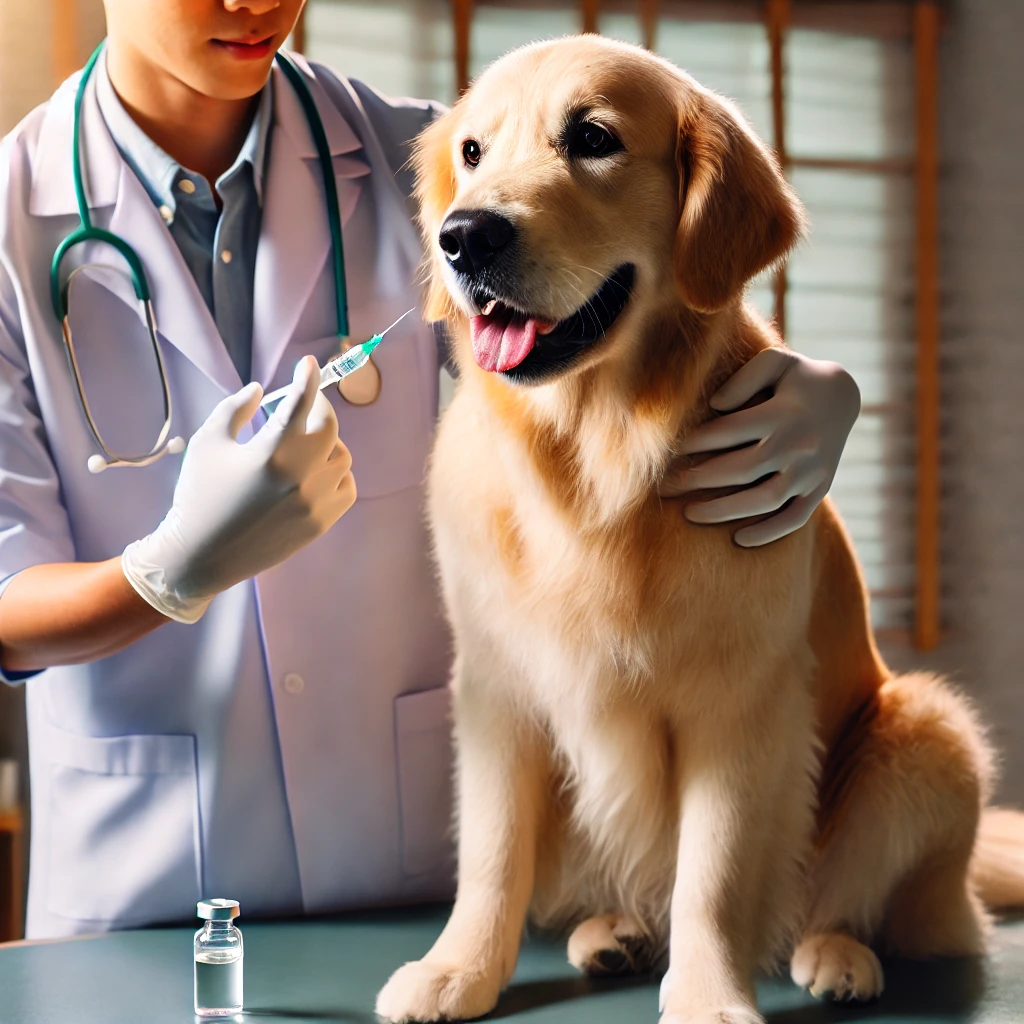How Often Do Dogs Need Rabies Shots?
Introduction
Rabies is one of the most dangerous and fatal diseases affecting both animals and humans. It is caused by a virus that attacks the nervous system and is almost always fatal once symptoms appear. Fortunately, rabies is preventable through vaccination.
One of the most common questions dog owners ask is: How often do dogs need rabies shots?
In this article, we’ll cover everything you need to know about rabies vaccinations, including vaccine schedules, legal requirements, potential side effects, and the importance of regular vaccinations.
1. What Is Rabies and Why Is It So Dangerous?
Rabies is a viral disease that spreads through the saliva of infected animals, typically through bites or scratches. Once the virus enters the body, it attacks the central nervous system, leading to:
- Aggressive behavior
- Excessive drooling
- Paralysis
- Seizures
- Death
Rabies is zoonotic, meaning it can be transmitted to humans. In many countries, laws require mandatory rabies vaccinations to protect both pets and people.
2. How Often Do Dogs Need Rabies Vaccines?
The frequency of rabies vaccinations depends on local laws, veterinarian recommendations, and the type of vaccine used. Here’s a general guideline:
| Vaccine Type | Initial Vaccination | Booster Shots |
|---|---|---|
| 1-Year Rabies Vaccine | Given at 12-16 weeks old | Annually (every year) |
| 3-Year Rabies Vaccine | Given at 12-16 weeks old | Every 3 years (after the first annual booster) |
Most puppies receive their first rabies shot at around 12-16 weeks of age. After that, a booster shot is required within one year, and then every one to three years, depending on the type of vaccine and local regulations.
3. Understanding 1-Year vs. 3-Year Rabies Vaccines
Many pet owners wonder whether they should opt for the 1-year vaccine or the 3-year vaccine. Here’s the key difference:

- Requires annual boosters
- Often required in regions with strict rabies control laws

- Provides protection for 3 years
- Still requires an initial 1-year booster after the first dose
- Approved in most U.S. states and many countries
Both vaccines offer the same level of protection, but the 3-year option is more convenient for pet owners.
4. Rabies Vaccination Laws: What You Need to Know
Rabies laws vary by country, state, and region. In many places, rabies vaccinations are legally required for dogs.
For example, in the United States:
- All states require rabies vaccination for dogs
- Some states allow 3-year vaccines, while others mandate annual boosters
- Owners must keep rabies vaccination records for proof
In countries with high rabies risk, annual vaccination may be required. Always check with your local veterinary authority for up-to-date regulations.
5. What Happens If a Dog Misses a Rabies Shot?
If your dog misses a rabies booster, it could lead to:


If your dog is overdue, contact your vet immediately. In most cases, you can simply get a booster shot to restore protection.

6. Are Rabies Vaccines Safe for Dogs?
Rabies vaccines are safe and effective, but some dogs may experience mild side effects, including:



Serious reactions (such as allergic reactions or anaphylaxis) are rare but possible. If you notice swelling, vomiting, or difficulty breathing, contact your veterinarian immediately.
7. Can Dogs Get Rabies Even If Vaccinated?
Rabies vaccines are extremely effective, with a near 100% success rate when given correctly. However, no vaccine is 100% foolproof. In rare cases, a dog might still contract rabies if:



This is why keeping up with booster shots is essential!
8. Can a Vaccinated Dog Transmit Rabies?
A fully vaccinated dog is highly unlikely to transmit rabies. However, if a vaccinated dog is bitten by a rabid animal, it may still require a booster shot as a precaution.
If a vaccinated dog bites a human, proof of rabies vaccination can prevent unnecessary quarantine or euthanasia in some regions.
9. How Much Does a Rabies Shot Cost?
The cost of a rabies vaccination varies by location and veterinary clinic. Here’s a general breakdown:
| Vaccine Type | Estimated Cost |
|---|---|
| 1-Year Rabies Vaccine | $10 – $30 |
| 3-Year Rabies Vaccine | $20 – $50 |
| Low-Cost Clinics/Shelters | $5 – $20 |
| Private Vet Clinics | $20 – $60 |
Many animal shelters and nonprofit organizations offer low-cost or free rabies vaccines, so check for programs in your area.
10. Rabies Vaccination and Travel: What You Need to Know
If you plan to travel internationally with your dog, rabies vaccination is often mandatory. Many countries require:



Always check pet travel requirements well in advance!
11. Final Thoughts: Keeping Your Dog Safe
How often do dogs need rabies shots? The answer depends on your location and the type of vaccine used. Most dogs receive a rabies shot every 1-3 years to stay protected.






Keeping your dog up to date on rabies shots not only protects your pet but also helps prevent the spread of this deadly disease.
Do you have any questions about rabies vaccinations? Drop them in the comments below!







